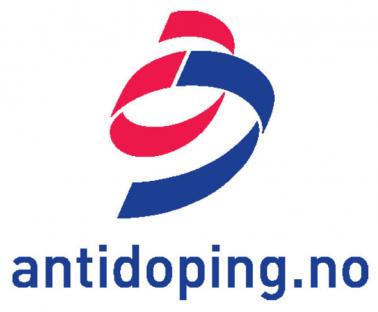Recreational Gym Members Face Same Steroid Testing as Pro Athletes in Northern Europe
Recreational Gym Members Face Same Steroid Testing as Pro Athletes in Northern Europe
If you join a commercial gym in certain Northern European countries, there is a good chance that you are signing a contract that gives the government permission to “randomly” test you for anabolic steroids and/or any other performance-enhancing drug (PED) on the World Anti-Doping Agency’s (WADA) Prohibited List.
 It doesn’t matter if you are just a recreational gym user or a non-competitive bodybuilder. You may be subjected to surprise steroid testing by national anti-doping organizations (NADOs) in the northern European countries of Belgium, Sweden, Denmark and Norway.
It doesn’t matter if you are just a recreational gym user or a non-competitive bodybuilder. You may be subjected to surprise steroid testing by national anti-doping organizations (NADOs) in the northern European countries of Belgium, Sweden, Denmark and Norway.
The World Anti-Doping Code (WADC) was designed to be applied to elite, professional and Olympic athletes who are actively competing in national and international sports. But now, the average gym rat can be legally yanked out of the gym and be forced to provide urine sample as a condition of their gym membership contract.
In a new article published in The Conversation, university researchers Katinka van de Ven and Kyle Mulrooney revealed how extreme the anti-doping crusade has become for weight trainers in some of these countries.
Belgium forbids recreational weight trainers from using any PED banned by the WADC just like elite competitive athletes. Anyone who looks “too muscular” can be pulled aside and tested on suspicion of using steroids. If the trainer tests positive for PEDs, this gives the police the right to search the individual’s home. If any illegal steroids are discovered, they face criminal prosecution.
Luckily, Belgium, like many European countries, doesn’t generally throw people in prison for mere possession offenses. Yet, a possession conviction could result in a hefty fine of €1,000 to €2,000. And if you piss prosecutors off too much by complaining of such a human rights violation, you could face a fine of up to €25,000. But the worst part of the punishment is the possibility that a steroid positive could result in gym goers being banned from every gym in the country for two entire years.
Denmark encourages commercial fitness centers to participate in a nationwide anti-doping monitoring program. Gyms who decline to participate must display a “frowning” icon prominently in their facilities to indicate that they are not supporters of anti-doping. This isn’t considered very good for marketing purposes. As a result, most gyms comply and are rewarded with a “smiling” icon to indicate that they support clean sports.
Sweden openly uses muscle profiling as an accepted law enforcement technique to detain and question bodybuilders on suspicion of steroid use based on nothing more than their physical appearance. The most high-profile case of muscle profiling in Sweden involved the detention of IFBB professional bodybuilder Toney Freeman in 2010.
Freeman was arrested at a guest appearance for a local supplement store while in Sweden to attend the 2010 Fitness Festival in Göteborg. Local police used promotional literature that placed Freeman at a guest appearance for a local supplement store of a specific date and time. Freeman was placed in handcuffs and placed in a police cruiser in front of media photographers. After being detained at the local police station, he was forced to provide a urine sample. The results were never publicly disclosed but Freeman admitted using doctor-prescribed testosterone and human growth hormone (hGH) and smoking marijuana while in Amsterdam.
Norway encourages commercial fitness centers to adopt an anti-doping program that designates the facility as a “Clean Centre”. The gyms are then given a license which permits them to collect urine samples from members. Approximately half of Norway’s commercial gyms participate in the “Clean Centre” certification program.
Of course, drug testing has been widely proven to be an ineffective strategy at minimizing drug use in schools and sports. The deterrent effect is very weak. Unfortunately, anti-doping crusaders have never let anything like scientific evidence interfere with their obsession with punishing steroid users.
Source:
van de Ven, K. & Mulrooney, K. (December 13, 2016). Doping controls in gyms – ineffective, costly and more common than you think. Retrieved from https://theconversation.com/doping-controls-in-gyms-ineffective-costly-and-more-common-than-you-think-68797



 It doesn’t matter if you are just a recreational gym user or a non-competitive bodybuilder. You may be subjected to surprise steroid testing by national anti-doping organizations (NADOs) in the northern European countries of Belgium, Sweden, Denmark and Norway.
It doesn’t matter if you are just a recreational gym user or a non-competitive bodybuilder. You may be subjected to surprise steroid testing by national anti-doping organizations (NADOs) in the northern European countries of Belgium, Sweden, Denmark and Norway.